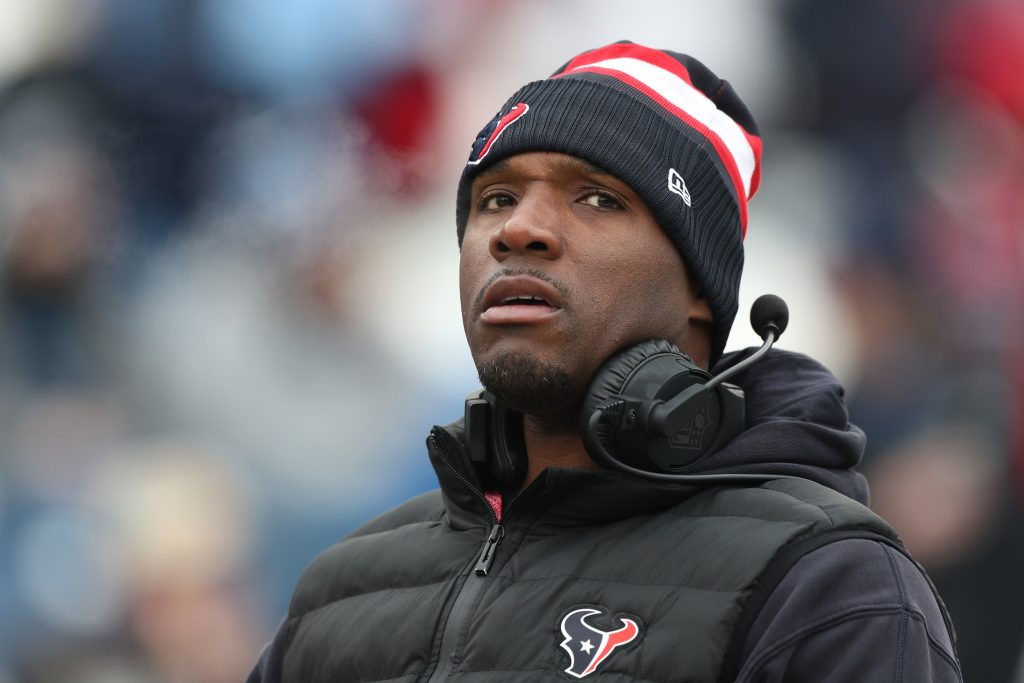DeMeco Ryans’ post-game comments following the Houston Texans’ Divisional Round loss to the Kansas City Chiefs ignited a controversy surrounding NFL officiating. While stopping short of direct accusations, Ryans insinuated a perceived bias against his team, suggesting they faced an uphill battle against not just the Chiefs, but also the officiating crew. His cryptic remark, “Us vs. Everybody,” resonated with a broader sentiment within the league – that smaller market teams, like the Texans, often find themselves at a disadvantage when facing powerhouses like the Chiefs, particularly in crucial playoff matchups. This perception stems from a historical narrative of officiating seemingly favoring larger market teams, raising questions about equity and impartiality within the NFL.
Two specific penalties called against the Texans became focal points of Ryans’ thinly veiled criticism. A roughing the passer call against Will Anderson and a late-hit penalty on Henry To’oTo’o, both involving Chiefs quarterback Patrick Mahomes, were deemed questionable by many observers. Replays of the To’oTo’o penalty suggested minimal contact with Mahomes, further fueling the controversy. These penalties resulted in 10 points for Kansas City, significantly impacting the game’s outcome and solidifying the Texans’ perception of unfair treatment. While Ryans acknowledged his team’s own shortcomings, including missed field goals and defensive lapses, he underscored how these errors were magnified by the perceived officiating bias, effectively creating an almost insurmountable obstacle.
Ryans’ comments tapped into a growing concern regarding the influence of market size and team popularity on officiating decisions. The Chiefs, a highly popular and financially successful franchise, have often been perceived as beneficiaries of favorable calls, a sentiment subtly reinforced by Ryans’ remarks. This perception creates an uneven playing field where smaller market teams, despite their best efforts, feel unjustly disadvantaged. The controversy highlights a critical issue within the NFL: the need for greater transparency and consistency in officiating to ensure fair competition.
The NFL’s officiating system has long been under scrutiny, with calls for improved training, accountability, and potentially even technological interventions to reduce human error and bias. The lack of transparency surrounding officiating decisions, coupled with the perceived inconsistency in penalties, fuels speculation and erodes trust in the system. Incidents like the ones highlighted in the Texans-Chiefs game contribute to a narrative where smaller market teams feel they are constantly fighting an uphill battle, not only against their opponents but also against the officiating crew. This perception undermines the integrity of the game and raises questions about the league’s commitment to fairness.
The implications of perceived officiating bias extend beyond individual games, impacting team morale, fan engagement, and the overall competitive balance of the league. When players and coaches feel that the officiating is skewed against them, it can lead to frustration, diminished effort, and a sense of helplessness. This can also affect fan perception and engagement, as they witness their teams seemingly victimized by questionable calls. Ultimately, the perception of unfair officiating undermines the integrity of the league and can create a sense of disillusionment among fans and teams alike. Addressing this issue is crucial for maintaining the credibility and competitiveness of the NFL.
Moving forward, the NFL needs to address these concerns head-on. Implementing more comprehensive officiating training programs, increasing transparency in decision-making processes, and exploring technological solutions to minimize human error are essential steps. Furthermore, creating a more robust system of accountability for officiating errors and biases can help restore trust and ensure that all teams, regardless of market size or popularity, are competing on a level playing field. Only through decisive action and a commitment to fairness can the NFL maintain its integrity and ensure that the outcome of games is determined by the players on the field, not by external factors like perceived officiating bias.










